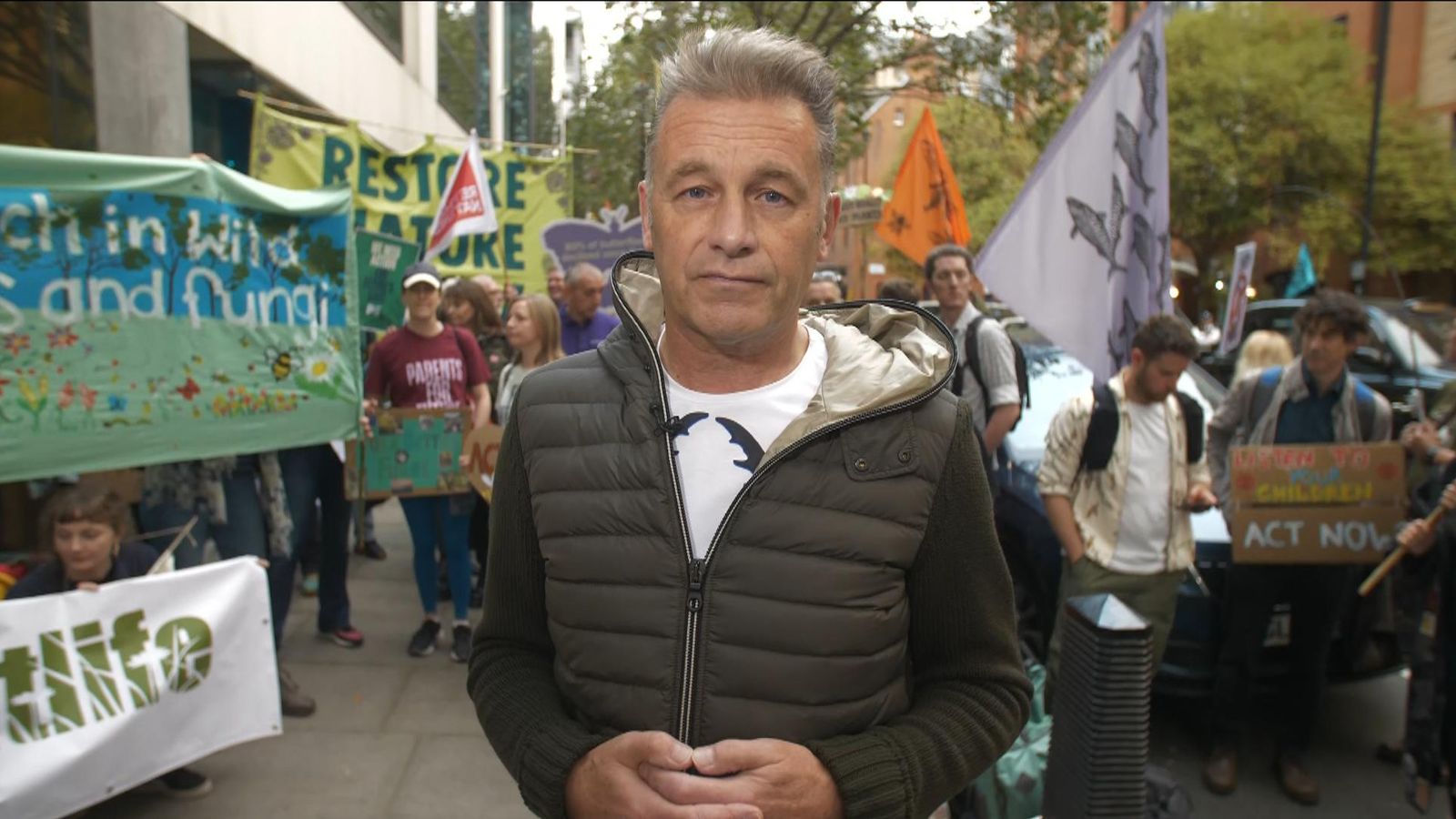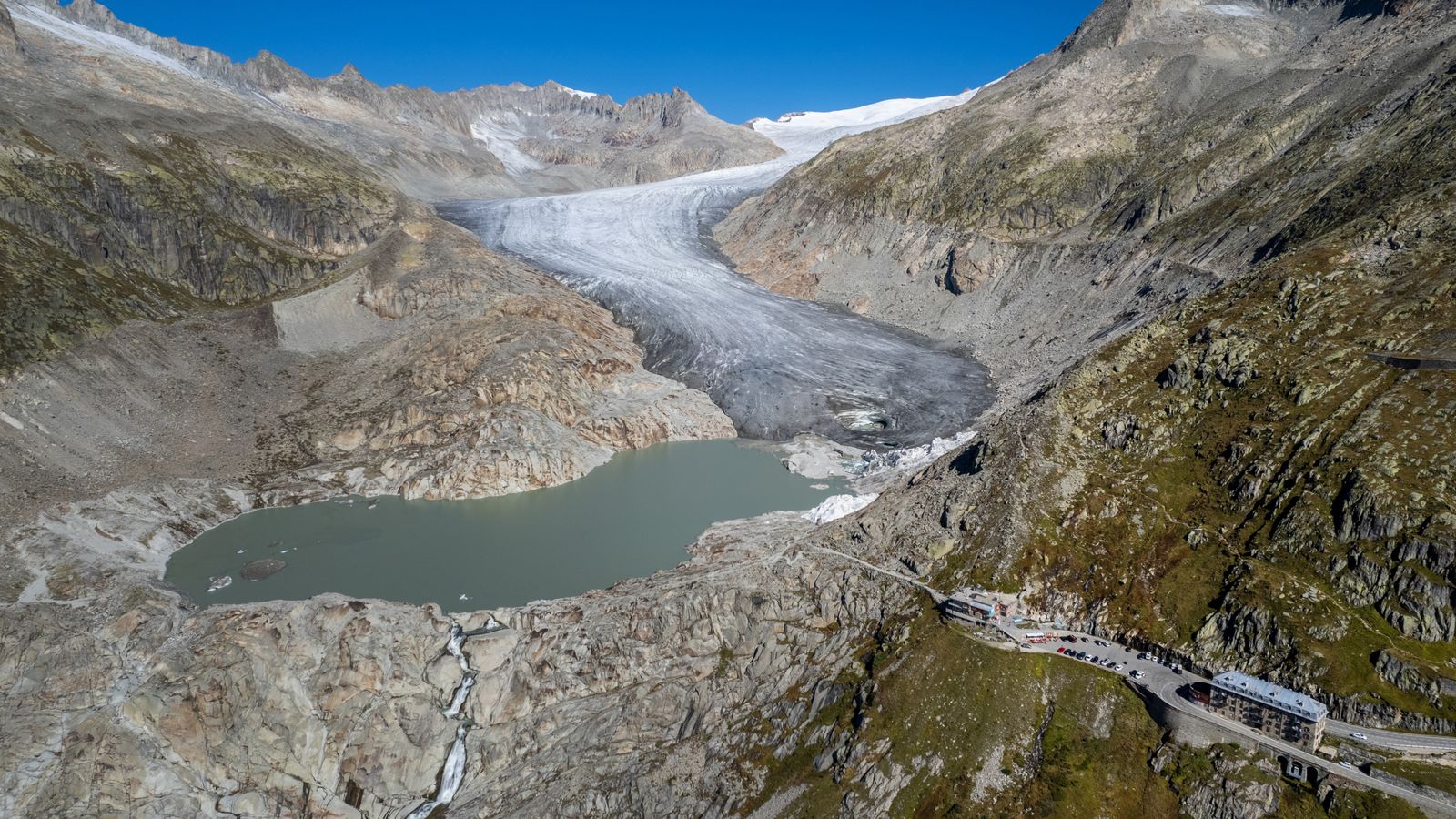There are “no jobs on a dead planet”, wildlife presenter Chris Packham has said – after the contentious new Rosebank oil field project was approved.
The Springwatch presenter and campaigner was speaking at a protest against the “terrible state” of Great Britain’s native species, held outside Defra headquarters on Thursday morning.
It followed a report also published yesterday which found British species had declined on average by 19% in 50 years.
Speaking to Sky News’s Kay Burley, he threatened to take to the streets “on several more occasions” before the next election unless “committed government support” materialised.
Asked what he thought of the greenlight for Rosebank, a new oil field in the North Sea, he called the decision “catastrophic” and “abject madness”.
He hit back at the government’s welcoming of the project partly on the basis of the jobs it would create, along with the potential multibillion poind direct investment it could bring to the country.
“They keep on about jobs in the oil industry. That’s bad, old business,” he said.
Record number of Asian hornet sightings in UK – as report highlights huge worldwide cost of invasive species
Warning to New Forest visitors as 18 stallions described as ‘horny teenagers’ released
Farmers paid to protect nature in dramatic overhaul of subsidies scheme
“We need bright, new business, which is in renewables. That’s where we need our investment, and we have that capability to do that in the UK.”
He added: “And after all… there are no jobs on a dead planet.”
Energy security secretary Claire Coutinho said yesterday the UK would continue to need oil and gas “on the path to net zero, and so it makes sense to use our own supplies from North Sea fields such as Rosebank”.
“The jobs and billions of pounds this is worth to our economy will enable us to have greater energy independence.”
Ithaca Energy, which has a 20% stake in Rosebank, said it could bring £8.1bn of direct investment, support around 1,600 jobs during the height of construction, and support around 450 UK jobs during the oilfield’s lifetime.
Please use Chrome browser for a more accessible video player
Yesterday’s State of Nature report attributed the “downward pattern of decline” of land and freshwater species in the UK primarily to climate change and farming.
Mr Packham celebrated farmers as “the people that are producing our food”, but said “without that nature alongside it, our world will begin to fail and we will be in deep trouble”.
The former presenter of The Really Wild Show called for further subsidies and support for farmers to allow them to “essentially farm wildlife” – a measure also called for in yesterday’s scientific report.
“So this is not just about us and our love for bats, birds and bugs. This is about all of the people living in the UK needing a healthy landscape a healthy world to live in,” he said.
The government was praised this year for overhauling payments to farmers to incentivise them to boost nature, though the scheme has been criticised for lacking in scale and access.
The environment secretary Thérèse Coffey yesterday said: “We continue to clean up our rivers, plant more trees and, through our world-leading environmental farming schemes, support farmers to produce food sustainably and profitably.”
Her department said it had created or restored wildlife habitats the size of Dorset, and launched 12 nature recovery areas.
Watch The Climate Show with Tom Heap on Saturday and Sunday at 3pm and 7.30pm on Sky News, on the Sky News website and app, and on YouTube and Twitter.
The show investigates how global warming is changing our landscape and highlights solutions to the crisis.








